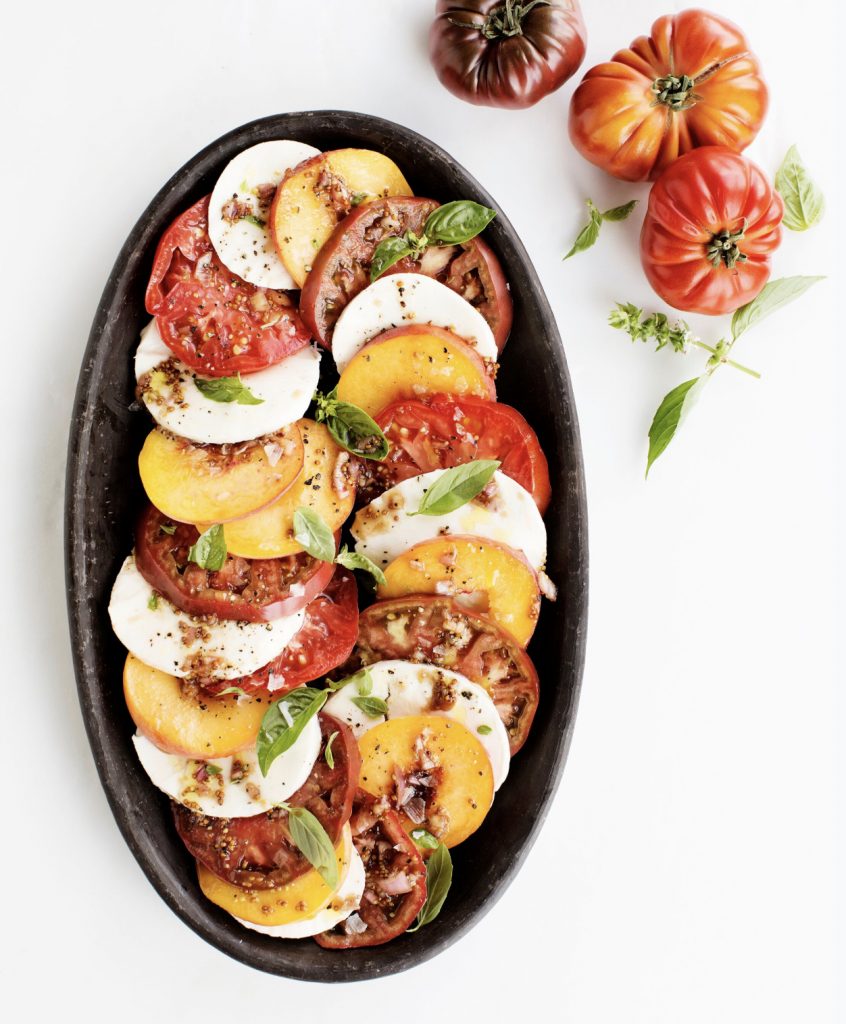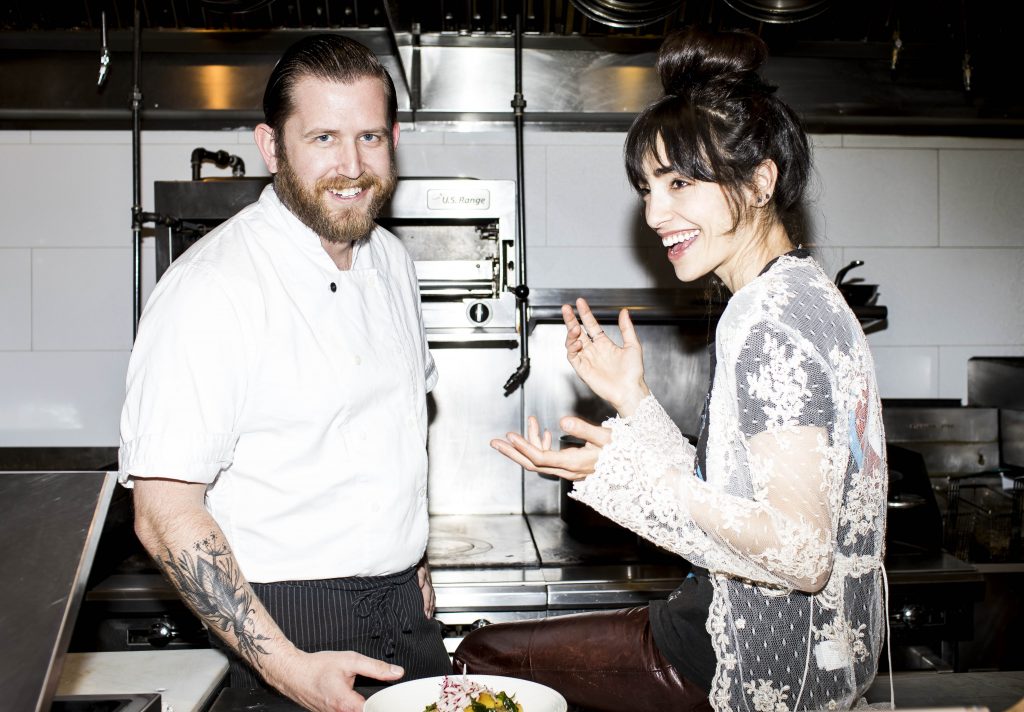
When you were a child, did you travel with your parents? Maybe it was a long road trip, before electronic devices were portable and ubiquitous. Trapped in the back seat, entertaining yourself by looking for exotic license plates. Maybe you went on a cruise, which David Foster Wallace so astutely identified as “A Supposedly Fun Thing I’ll Never Do Again.” Regardless of the mode of transport or the final destination, I’ll hazard a guess: you didn’t have very much fun. Perhaps you blamed the location. If only your parents had taken you to the Caribbean!
I imagined the same. That aquamarine dream is on my mind today as I sit down with Daniel Herget, chef of Little Octopus, a restaurant with strong island influences and a recent addition to the marvelous food scene in The Gulch. I’m surprised when he recalls his many childhood trips to the Caribbean and laughs. “It’s funny, because as a kid, I kind of was over it, because my parents—that’s all they ever wanted to do. They were big on family vacations, and the only place we ever traveled was in the Caribbean. But as a kid, all I ever wanted to do was go to Europe or Asia.” We should all be unlucky like Herget, right? He shakes his head at his ungrateful young self. “Now, looking back on it, I realize what a goof I was being for not fully appreciating it . . . by the time I was fourteen or fifteen, I’d been to nearly every island in the Caribbean.”
Herget is no longer a goof, and he recognizes his family trips as the catalyst for his obsession with Caribbean cuisine. He spent much of his young life exploring the flavors and food traditions of the islands, and now he’s using Little Octopus to share that love with the diners of Nashville.
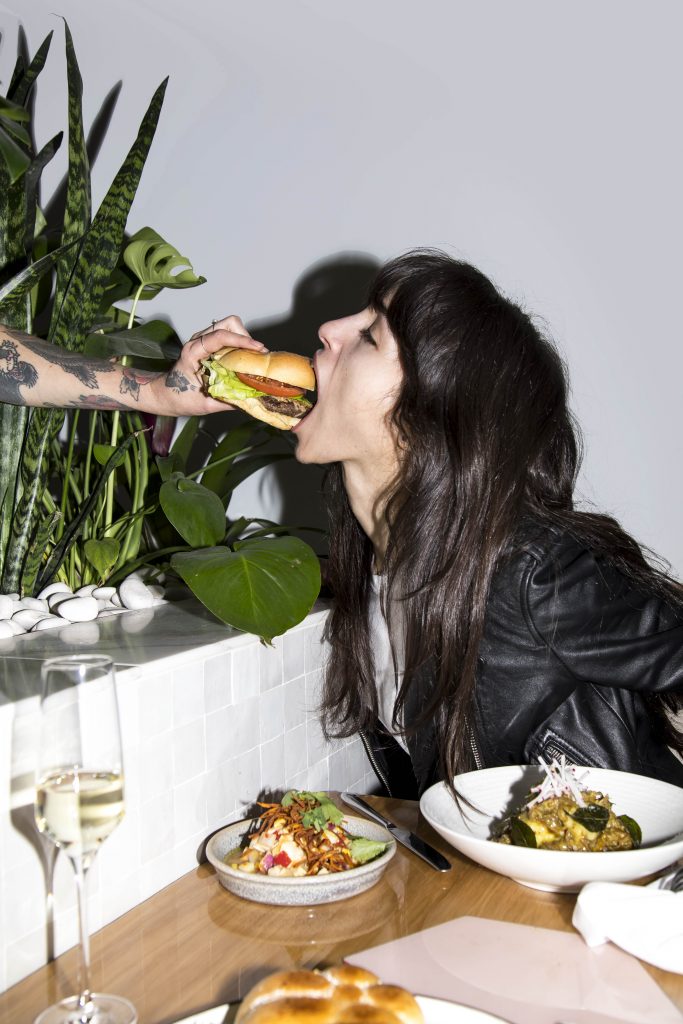
"We kind of grew up in the back of the restaurant, and I always felt comfortable there . . . The dinner table was this space that brought everybody together."
Throughout his childhood in Gainesville, Florida, Herget noticed the connections between food and family. His best friend’s parents were restaurateurs. “We kind of grew up in the back of the restaurant, and I always felt comfortable there,” he tells me. Closer to home, his mother’s family regularly gathered for shared meals, and Herget began to understand: “The dinner table was this space that brought everybody together.”
When Herget moved to Miami to attend culinary school, he started to see the correlation between his family’s communal meals and the ways that food brought people together in the Caribbean and Latin cultures that were all around him. He also found himself even closer to the islands and deeper into his exploration of island cuisine. “It was a lot of fun to go down the rabbit hole and chase those flavors and really try to understand what made them work and why I liked them so much . . . I think it really comes down to the vibrancy of it. Really acid-forward, fresh ingredients, minimally treated.”
Nashville’s food scene has a lot going for it: James Beard finalists are spread east and west, smoke rises from the pits of BBQ masters, and hot chicken is even at KFC now (ugh). But what Herget offers with Little Octopus is rare in town, Calypso Cafe notwithstanding. His clean, bright cuisine takes you straight to the beach.

Longing for that coastal freshness is ultimately what drove Herget and co-owners Sarah and Brad Gavigan to open Little Octopus in the first place. The Gavigans’ POP space on Gallatin had already spawned a winner in Otaku, where Herget oversaw the ramen-focused kitchen after meeting the Gavigans through connections at Sun Noodle, the purveyor of Otaku’s fresh noodles. When Otaku transitioned from pop-up to brick and mortar, the team discussed their options for POP. Sarah, a Nashville native who spent twenty-plus years in Southern California, missed the cuisine offered out west. And though Herget’s tastes developed three thousand miles away, he was pining for something similar: “There’s this style of food that isn’t necessarily item for item the same, but the spirit is the same. Very fresh, very vibrant, pretty clean. And we were kind of struggling to find that in Nashville . . . We were kind of like, ‘If nobody else is doin’ it, and we want it all the time, we’re just gonna have to do it.’”
Instead of POP going dark at Otaku’s departure, the Gavigans gave Herget the space, and with it the opportunity to introduce Nashvillians to his sun-drenched island cuisine. The immediate success of Little Octopus—perpetual crowds, rave reviews—showed the team that the city and its diners were ready to fall in love with Herget’s spirited and creative menu. I ask Sarah to explain what she thinks of its success, and she writes via email: “Nashville is coming into its own right now as a city that stretches creative boundaries. We feel damn lucky to be a part of that movement. I never imagined I would open two restaurants, but when you find yourself two hundred yards in front of the wave, you start paddling. I think Little Octopus works because it is still very humble and honest food. We created the vibe around the food, trying to be true to the idea of simple beauty.”
What does that mean, humble and honest food, true to the idea of simple beauty? I ask Herget to make it more concrete. “Food that’s not messed around with too much. It’s not gussied up. It is what it is, you know what I mean? Rarely do we have more than five ingredients on the plate. That’s really important to me, because all ingredients are beautiful. I don’t like to cover things up, I don’t like to mask things. I just like to let ‘em be themselves.” Cooking like this demands ripeness, freshness, and high quality, especially for a menu that heavily features seafood.
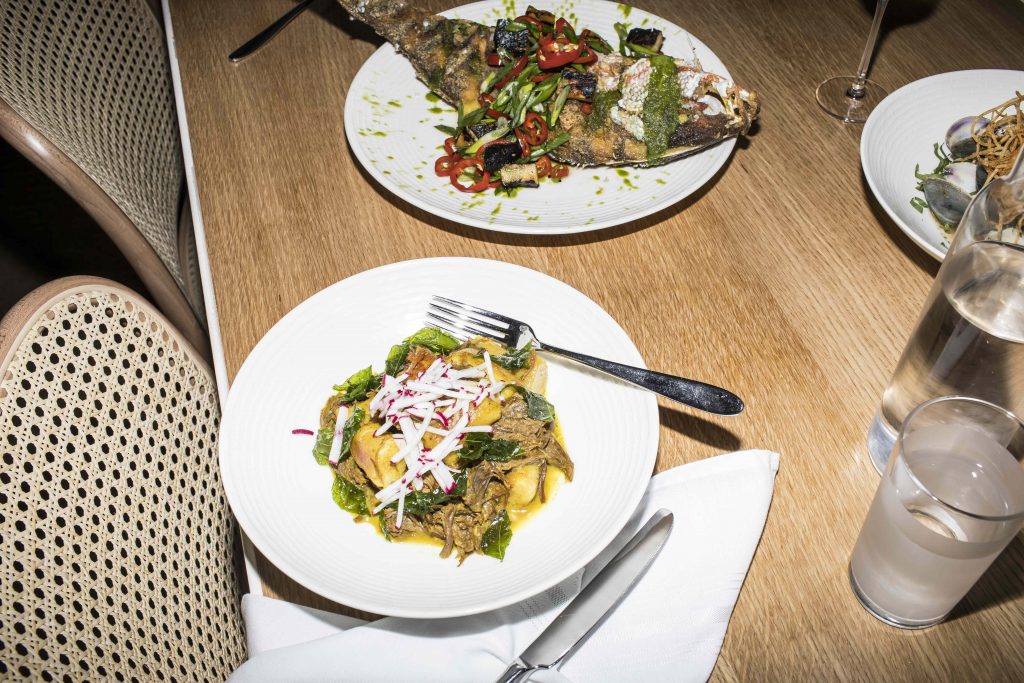
What’s it like, trying to secure that level of freshness here in Nashville? “It’s difficult,” he says. “It was a challenge, and I will say it was very frustrating the first few months to try and find the right purveyors. Luckily we found some great fishmongers and great fish purveyors. And we’ve got some pretty great relationships with local farms.”
After his sweltering Florida childhood, Herget still marvels at the breadth of produce that can grow in a slightly more temperate climate, and how much is grown just an hour or two from Nashville. “I’ve talked to a lot of chefs who have come to Tennessee from other regions, and I think everybody’s in agreement: probably other than San Francisco and Santa Barbara, there are very few places that have so many farms in such close proximity. It’s amazing.”
Still, even with the area’s many farms, making Caribbean cuisine here is not without its challenges, and sometimes Herget just can’t get the exact ingredients he wants. In those cases, he’s learned to be creative and flexible. “There’s some things that we kind of have to just find our own way on, or utilize other ingredients that are close. There’s a dish in the Caribbean that we’re gonna be bringing on for the summer, and typically it uses a green called callaloo. It doesn’t grow really well here, but [it’s] very, very similar in flavor to turnip greens—which obviously are abundant around these parts.”
The Little Octopus menu is full of abbreviations. After the ingredients, letters note when dishes are GF for gluten-free, V for vegan, DF for dairy-free, and more. I ask Herget about the many classifications, and he grows serious. When he was twenty-two, he was diagnosed with Crohn’s disease, a chronic inflammation of the bowels. He spent about a week and a half in a hospital bed and went home with piles of pills. But when the medicine wasn’t effective, a friend of his mother pulled him aside. “She told me, ‘You’re not sick. I know you have these people telling you you’re sick. You’re not sick. You just need to start treating yourself with a little more respect and understand what it is that you actually need. Stop listening to other people and start listening to your body.’”
The message was a revelation, and through diet changes and exercise, Herget was eventually able to discontinue all of his medications. The experience changed how he thought about food. “Every sort of person needs a different diet in order to really make the most of the food that they put in their body. So making it easy for people from all walks of life—with any kind of dietary restrictions or lifestyle choices—to navigate our menu was super important to me.”
This is not an attitude I’ve heard many chefs express. And Herget isn’t done. “We really want everybody to feel like they’re not bothering us by having those dietary restrictions or those choices. There’s this connotation about chefs . . . that we’re sort of grumbling in the back, like, ‘How dare you?’ We really wanted to lift that veil and make people realize that the only reason we’re here is for you. It’s for the guests and to be hospitable. So we don’t want anybody to feel like they can’t come dine with us for any reason.”
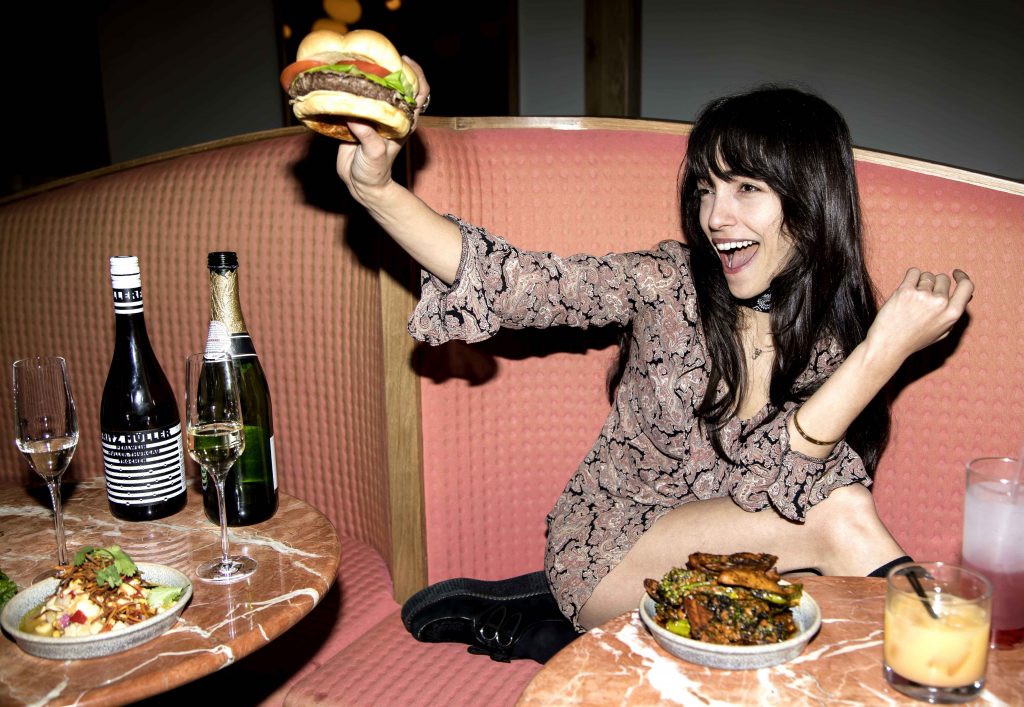
Herget’s respectful hospitality starts in the kitchen and emanates throughout the restaurant; it helped me fall in love with his cooking when Little Octopus was in the POP space on the East side. But to be honest, I was worried that one of our favorite spots moving to the more rarified streets of The Gulch would mean exponentially increased prices, or that somehow the bold combinations that filled the menu would be replaced with boring, risk-averse dishes.
Of course I was wrong. The new space glitters, with bright gold accents shimmering at the edges of long white walls. There are splashes of a pastel I call coral, though my wife says it’s now called millennial pink. It’s tré Miami, a strong rebuff to the reclaimed wood and metal found in so many local dining rooms. The menu has changed, but it’s adjusted for the season, not for the neighborhood.
The new Little Octopus opened in January, and Herget tells me about the response since their move. “The Gulch has been great, even though we are still extremely thankful for the support that we had on the East side. And it has been incredible to see our guests from the East side following us over to The Gulch. That was a big concern of ours. We didn’t want to ostracize the neighborhood that helped us get where we are.” He adds, “The Gulch is doing some amazing things right now. I think within a couple of years, it probably will be the dining neighborhood in Nashville.”
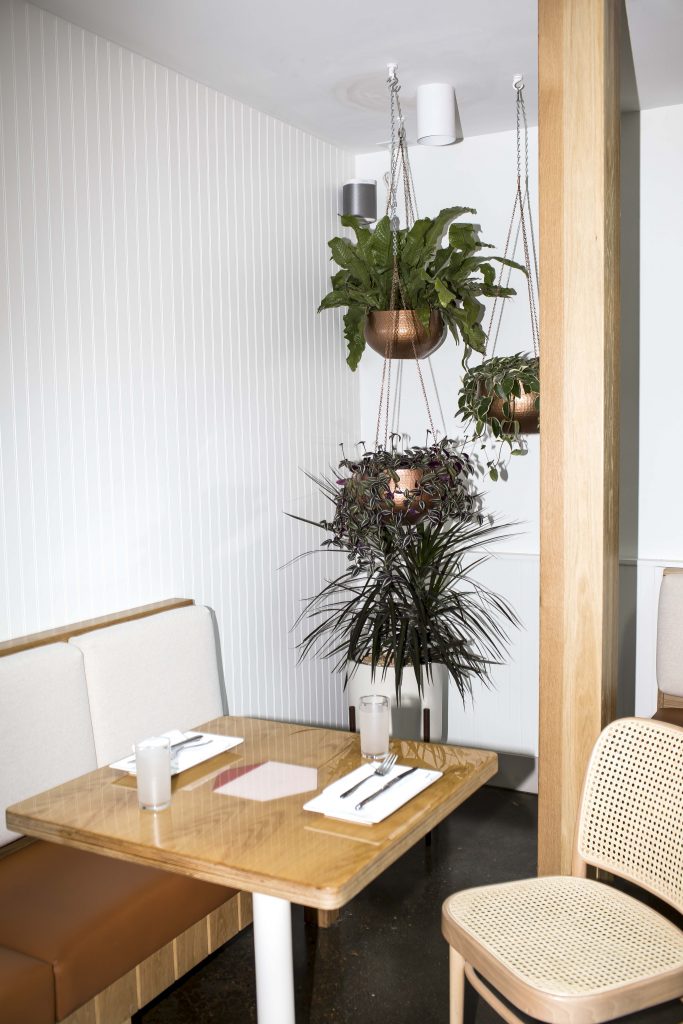
Later that week, Herget invites my wife and me to join him at the chef’s counter for dinner. Our meal begins with sips from their rum tasting menu and raw oysters served with a garnish of pickled onions and a dusting of allspice. The oysters taste of Christmas—if you spent the holiday in Key West. Herget tells us that the eighteen-year-old rum from the island of Dominica makes a fantastic whiskey replacement in cocktails, especially in a Manhattan.
The meal continues in similar fashion. From the raw section comes expertly sliced hamachi floating amidst pineapple, avocado, and fresh bay; it’s gone in a flash. The ceviche is mixed with hearts of palm and accompanied by a blood-red hot sauce made of hibiscus and fresno chiles. Just when we’re starting to feel full, a line cook named Graydon says we can’t miss the side salad that accompanies the steak. Though he has countless other orders, he takes a moment to prepare the salad of puffed rice, fried garlic, shallots, parsley, and cilantro.
As we marvel at the creation and its generous delivery, some of the dishes we neglected to order pass by on their way to other tables. Every plate looks inviting. I mention to Herget that one of our favorite dishes was his watermelon salad, and he tells me it’s coming back to the menu as soon as watermelons are ripe. When the season turns, you can find me at Little Octopus, anxious to see what fresh new surprises Daniel Herget has up his tattooed sleeve.
Suggested Content
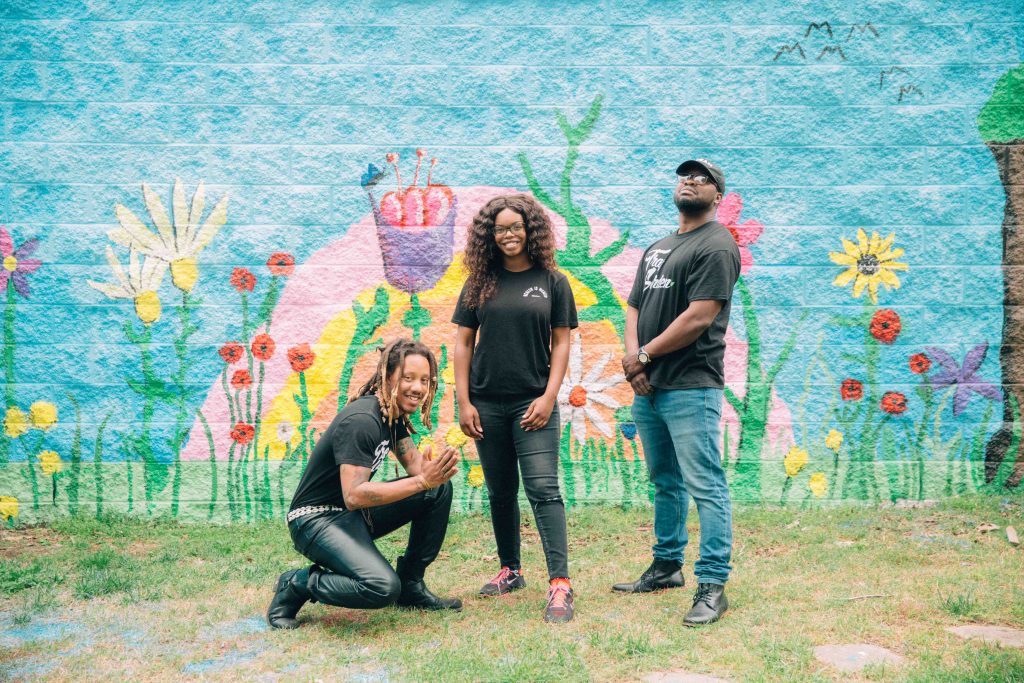
Can You Dig It?
How urban farming nonprofit Trap Garden is working to eradicate Nashville’s food deserts

Double Scoop of Happiness
Kokos Ice Cream creators Jerusa van Lith and Sam Brooker want to show you just how good ice cream can be.

